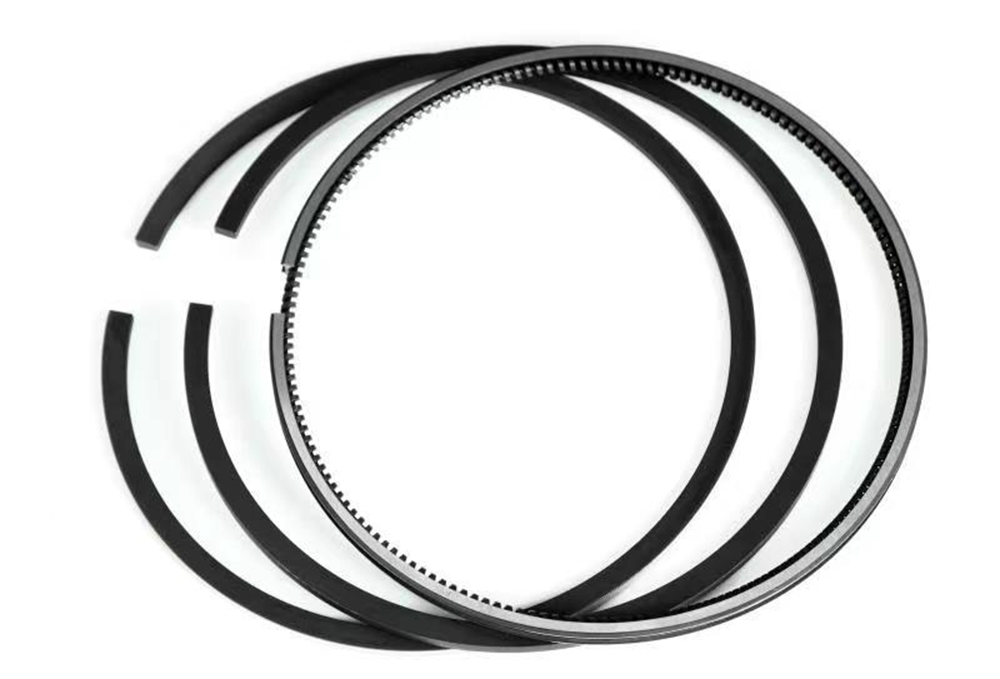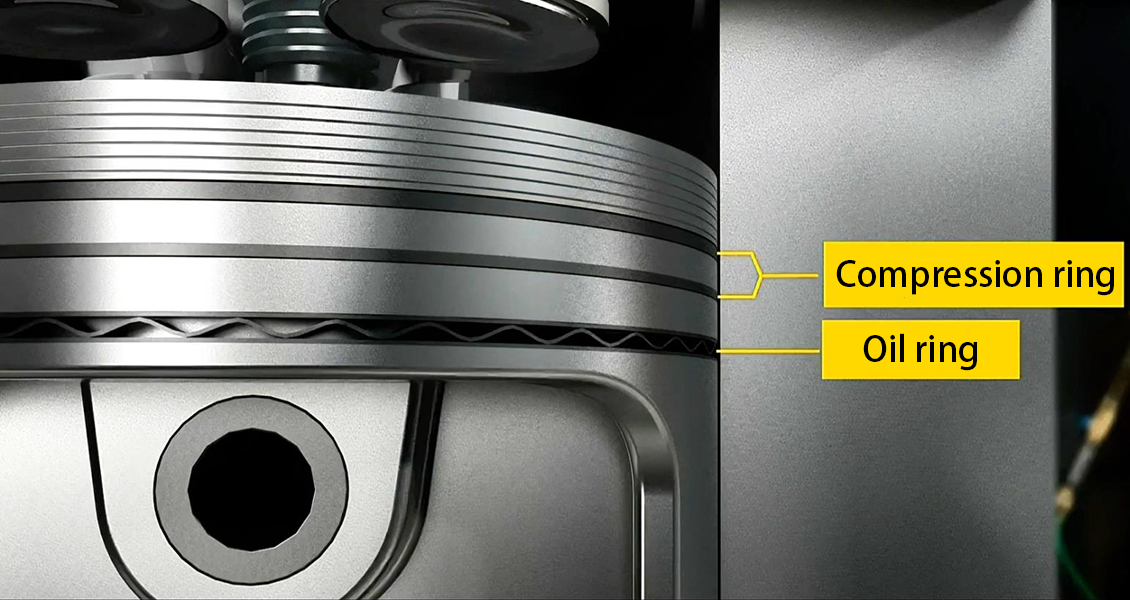Piston rings are small but mighty components that play a vital role in the performance and longevity of your engine. Nestled between the piston and cylinder wall, these rings ensure a tight seal, regulate oil distribution, and transfer heat away from the combustion chamber. Without them, your engine would suffer from power loss, excessive oil consumption, and even catastrophic failure.
Key Takeaways
- ·What are piston rings? Critical components in engines that seal combustion chambers, regulate oil, and transfer heat.
- ·Why do pistons have 3 rings? Each ring serves a distinct role: compression sealing, heat transfer, and oil control.
- ·Failure signs: Loss of power, excessive oil consumption, blue smoke, or misfires.
- ·Professional solutions: High-quality materials and precision engineering ensure durability and performance in extreme conditions.
What Are Piston Rings?
Definition and Design
Piston rings are circular metallic bands installed around pistons in internal combustion engines. They are split to allow expansion and contraction during operation. Typically made of cast iron, steel, or advanced alloys, modern piston rings are engineered to withstand extreme temperatures, pressure, and friction.
Primary Functions
Piston rings perform three critical roles:
1. Sealing the combustion chamber: Prevent gas leakage during combustion, ensuring maximum power output.
2. Heat transfer: Conduct heat from the piston to the cylinder wall, preventing overheating.
3. Oil control: Regulate oil distribution on the cylinder wall to minimize friction while preventing excess oil from entering the combustion chamber.
Why Do Pistons Have Three Rings?
The Role of Each Ring
Most engines use three piston rings, each optimized for a specific task:
1. Top Compression Ring:
- Withstands the highest pressure and temperature.
- Seals combustion gases to maximize engine efficiency.
2. Second Compression Ring:
- Supports the top ring in sealing gases.
- Assists in heat dissipation.
3. Oil Control Ring (Scraper Ring):
- Scrapes excess oil off the cylinder wall.
- Returns oil to the crankcase, reducing consumption and emissions.
Why Not Fewer or More?
- Fewer rings: Risk of poor sealing, increased oil consumption, and reduced engine efficiency.
- More rings:Higher friction, reduced power output, and unnecessary complexity. The three-ring design balances performance, durability, and cost-effectiveness.
What Happens When Piston Rings Fail?Common Symptoms of Failure
- Loss of engine power: Leaking compression reduces combustion efficiency.
- Excessive oil consumption: Worn rings allow oil to enter the combustion chamber.
- Blue exhaust smoke: Burning oil produces a bluish tint in exhaust gases.
- Increased emissions: Failed rings contribute to higher hydrocarbon emissions.
- Engine misfires: Uneven compression disrupts the combustion cycle.
Long-Term Consequences
Ignoring worn piston rings can lead to:
- Permanent cylinder wall damage.
- Catalytic converter failure due to oil contamination.
- Costly engine overhauls or replacements.
How Do I Know If My Piston Rings Need Replacement?Diagnostic Methods
1.Compression Test:Measures pressure in the combustion chamber. Low compression indicates ring wear.
2.Leak-Down Test:Identifies the source of compression loss (e.g., rings vs. valves).
3.Oil Consumption Analysis:Significant oil loss between changes suggests ring failure.
4.Visual Inspection:Blue smoke or oil residue in the exhaust system.
When to Act
- Replace rings if compression drops below manufacturer specifications.
- Address symptoms early to avoid cascading engine damage.
Niche Applications in Extreme Environments
FFKM O rings excel in applications where other materials fail. In the energy sector, they endure harsh chemicals and high temperatures. Aerospace applications rely on their ability to withstand extreme conditions, from cryogenic environments to intense engine heat. The pharmaceutical industry uses them in ultra-pure water systems and filtration units, ensuring contamination-free performance. Semiconductor manufacturing also benefits from their resistance to aggressive chemicals and high temperatures during advanced lithography and etching processes. These niche applications highlight the indispensable role of FFKM O rings in critical industries, further driving their cost.
Why Choose High-Performance Piston Rings?Advanced Materials and Technology
Our piston rings are engineered using:
- High-grade alloys: Resistant to thermal deformation and wear.
- Plasma-coated surfaces: Reduce friction and extend lifespan.
- Precision machining: Ensures perfect fit and sealing efficiency.
Industry Applications
- Automotive: Enhanced durability for high-performance and turbocharged engines.
- Marine and Aviation: Corrosion-resistant rings for harsh environments.
- Industrial Machinery: Designed to withstand continuous heavy-duty operation.
Conclusion
Piston rings are unsung heroes of engine performance, balancing sealing, lubrication, and heat management. Understanding their role and recognizing failure signs can save costly repairs and downtime. At Yokey, we combine cutting-edge materials and precision engineering to deliver piston rings that excel in durability and efficiency—whether for everyday vehicles or mission-critical machinery. Trust our expertise to keep your engines running smoothly, mile after mile.
FAQ
Can I replace piston rings without rebuilding the engine?
While possible in some cases, worn rings often indicate broader engine wear. A full rebuild ensures optimal performance.
How long do piston rings last?
Lifespan varies with usage and maintenance. High-quality rings can last 150,000–200,000 miles under normal conditions.
Do synthetic oils extend ring life?
Yes. Synthetic oils reduce sludge buildup and provide better lubrication, slowing ring wear.
Can piston rings be re-used?
No. Rings lose tension and shape over time; reusing them compromises sealing performance.
Why do diesel engines have more piston rings?
Diesel engines operate at higher pressures, often requiring additional rings for robust sealing and heat management.
Media Contact
Company Name: Ningbo Yokey Precision Technology Co., Ltd.
Email: Send Email
Phone: +8615258155449
Country: China
Website: https://www.yokeytek.com/


